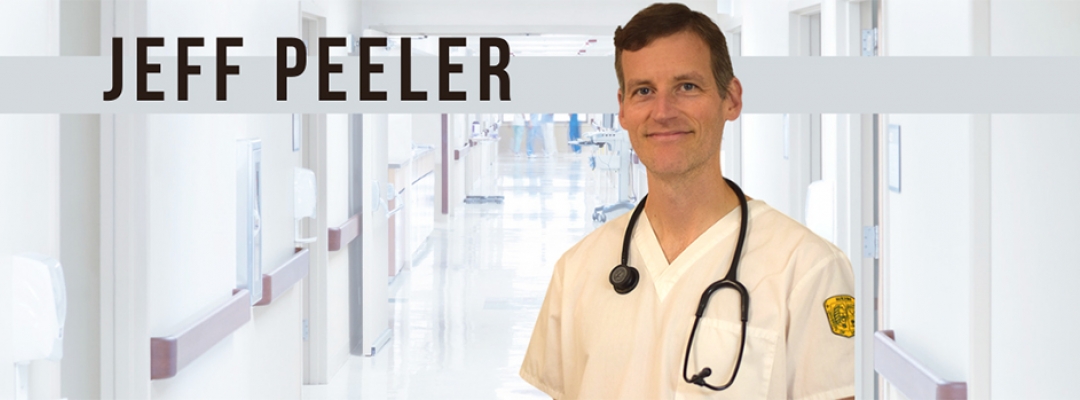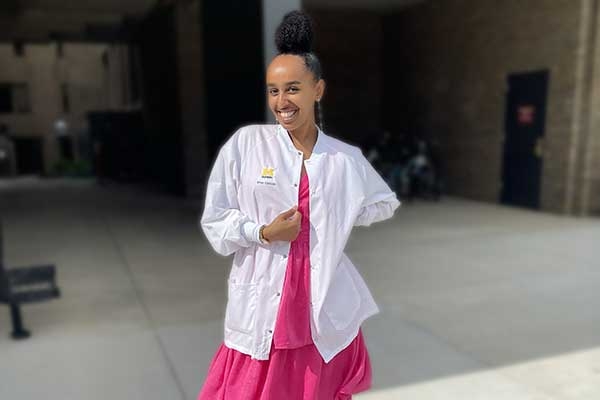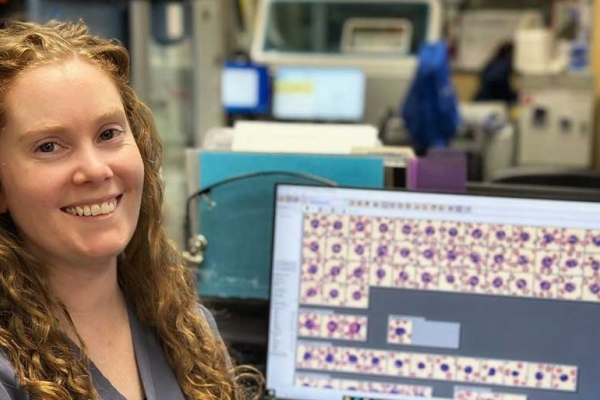After becoming a hospice volunteer in 2017, Jeff Peeler never imagined it would lead him to an entire career change.
Although he enjoyed his 13-plus-year career in software engineer and manager roles at various Silicon Valley tech firms, Jeff found what truly made him happy—helping others through the outlet of health care. It was during that hospice volunteer work where Jeff realized how rewarding the nurse/patient relationship is. That’s when the lightbulb lit—this was where he was meant to be.
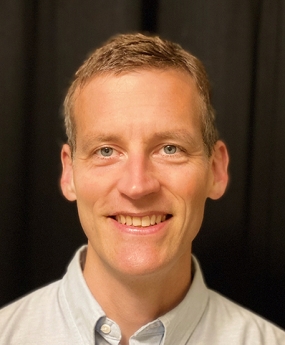
“Over time, I realized my primary goal was to serve others as a career,” he explains. “Though mentoring and motivating were part of my role as engineering manager, I wanted to have a more lasting impact on a person's life. When I was a hospice volunteer in 2017, I saw nurses become trusted guides to a patient and their family when they most needed it. Nursing seemed like a privileged career to me. Volunteering with hospice was a transformative experience that motivated me to go into health care.”
But his first step to this career change was to get a solid sciences education—and he chose us as his educational partner.
“I took a general biology course to make sure I enjoyed biology and could ‘hack it’ as a student again,” Jeff recalls. “In this course, I met some people in the post-bacc program and they impressed me with their intelligence and sense of purpose. When I decided I wanted to become a clinician, I knew very little about the life sciences. Because nursing school is competitive, I had to do well in nursing school prerequisite courses and also demonstrate that I was a strong science student.”
Read all about how Jeff made his way from a software engineer to now a nursing graduate student!
Why did you choose to study with us?
Challenge and flexibility. UC Berkeley has a great academic reputation so I knew UC Berkeley Extension courses would be rigorous and my classmates would be both committed and smart. Also, I have two grade-school children and needed a flexible schedule. The courses met only once a week and I could take them in any order (i.e., the curriculum isn't preordained).
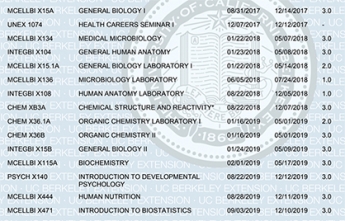
What courses did you take with the program? Which was your favorite?
I took 14 courses (see photo)! I had exceptional instructors in Human Anatomy Lab taught by Em Segmen, Biochemistry taught by Nidhi Ahuja, and Human Nutrition taught by Peter Niloufari.
What was your experience taking these courses?
Meeting only once a week for class was challenging at first. The lectures were dense with information, the instructors were experts and my classmates silently comprehended everything.
At times I would be confused in lecture and felt nervous about asking questions. After some adjustments, I began looking forward to the classes as I began to feel more and more comfortable asking questions and collaborating with classmates.
When it was time to apply to nursing schools, the instructors I asked didn't hesitate to write letters of recommendation for me.
Congrats on your acceptance into nursing schoool!
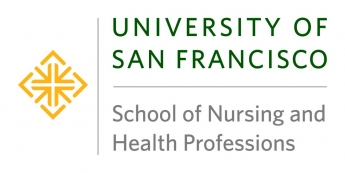
I'm now a graduate nursing student at the University of San Francisco. It's intense but I'm breezing through pathophysiology and pharmacology courses thanks to my post-bacc courses at Extension. These are major subjects of the NCLEX (nursing licensure) exam, too.
What advice would you give to a student who is coming to study in the post-bacc program on how to best succeed?
-
Meet with your adviser every semester or two.
-
Don't burn out. Plan regular free time for yourself during the semester and don't miss it.
-
Maximize learning in class. Scan the lecture slides that instructors post before class even if you don't understand the material. You will be more engaged during the long lectures.
What does participating in this program mean for you personally?
Doing well in the courses I took gave me the confidence that health care was the right choice for me.
